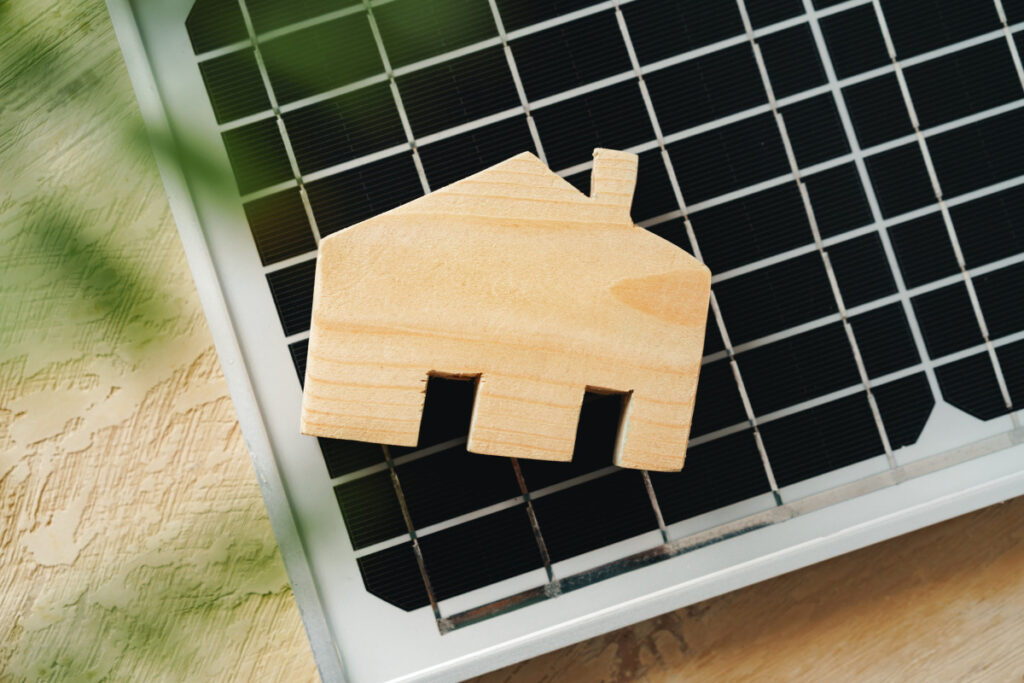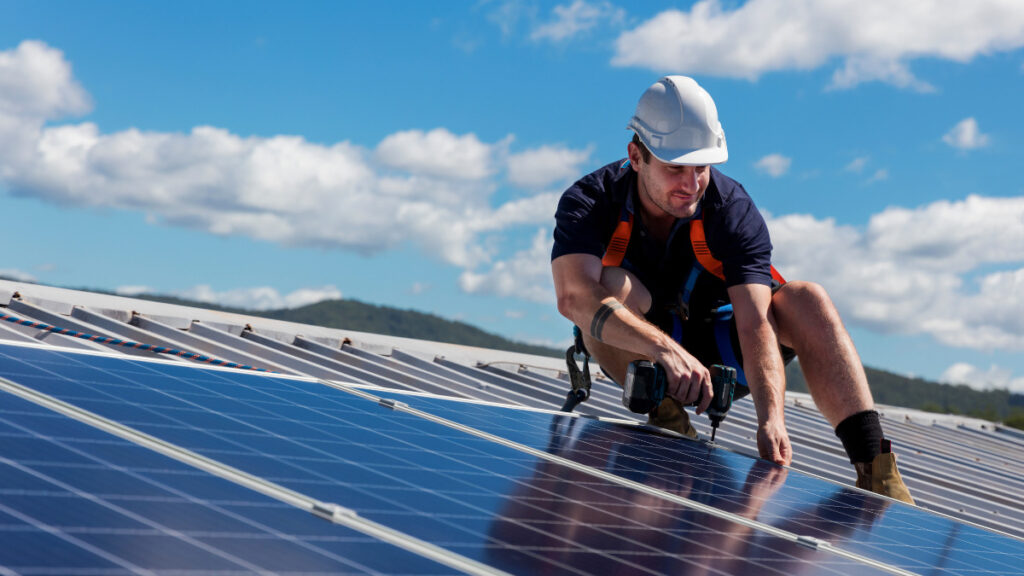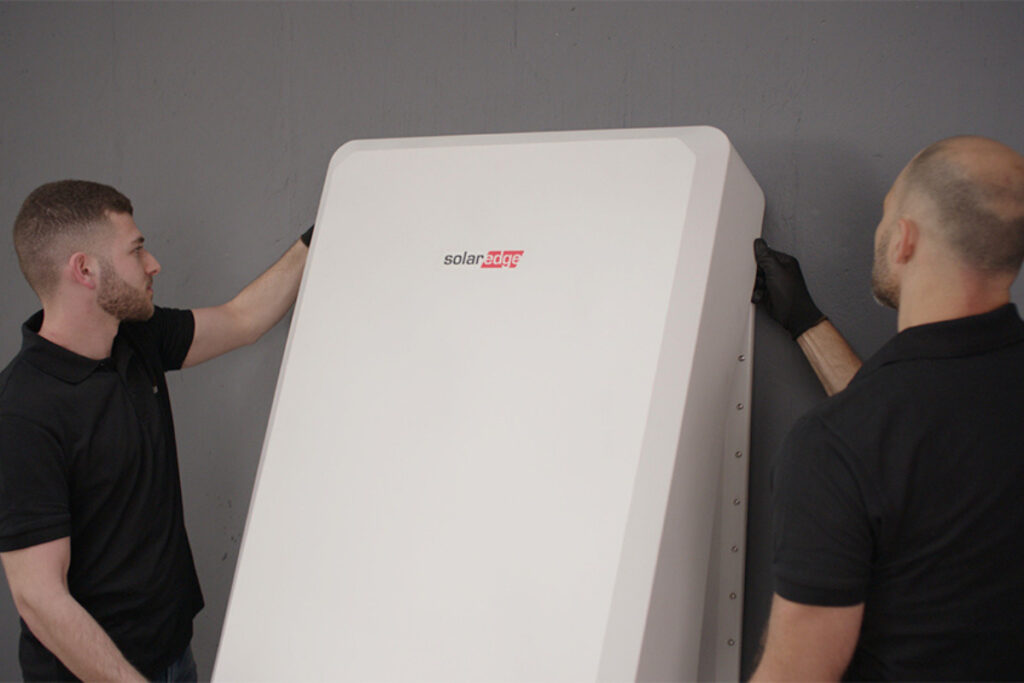Introduction
Are you an Arizona Public Service customer looking to save on energy bills while contributing to a cleaner environment? Look no further! Our comprehensive guide to installing solar is here to help you harness the power of renewable energy and maximize savings.
We’ve covered all the essentials for your seamless journey toward greener living in Arizona. This includes understanding solar systems, the interconnection process, available incentives, tax credits, and rebates.
| Key Takeaways |
|---|
| Arizona homeowners can significantly reduce their energy bills by installing solar panels with APS, which has a goal to provide 100% clean energy by 2050 and offers various programs for homeowners interested in going solar. |
| Going solar with APS not only helps save on energy bills but can also increase property value of homes. Additionally, it is an environmentally-friendly alternative to nonrenewable fossil fuels, and offers tax credits and incentives that can greatly reduce the installation cost of solar panels. |
| Maximizing savings with solar involves taking advantage of net metering, time-of-use rates, battery storage options, monitoring energy usage and making energy-efficient upgrades. Homeowners can receive credit for the excess energy their solar panels produce through net metering while time-of-use rates offer lower prices for energy use outside peak hours. |
| Choosing a reputable installer who understands APS's interconnection process is crucial in ensuring that the system performs efficiently over time. Careful research into financing options and rebates/incentives available as well as obtaining necessary permits are important steps towards successful installation of solar panel systems. |
Understanding Solar Energy And Arizona Public Service
Solar energy is a clean and renewable source of electricity. It uses photovoltaic (PV) panels to convert sunlight into usable energy. At the same time, Arizona Public Service is the state’s largest utility company. It caters to more than 2.7 million residential and commercial customers across Arizona.
What Is Solar Energy And How It Works
Solar energy is a renewable and sustainable form of power generated by harnessing the abundant, accessible, and clean energy emitted from the sun. It’s an environmentally friendly alternative to fossil fuels, responsible for polluting air and water sources and contributing to climate change.
To capture solar energy efficiently, photovoltaic (PV) panels are installed on rooftops or open land spaces where they can absorb sunlight directly. The PV panels contain special cells made from silicon that convert light into direct current (DC) electricity through the photovoltaic effect.
This DC energy flows through an inverter that converts it into alternating current (AC), making it compatible with household electrical systems and enabling it to be used like any other source of electricity.
Utilizing solar power helps Arizona homeowners save money on monthly utility bills, and fosters progress toward global sustainability targets by reducing reliance on fossil fuels.
Overview Of Arizona Public Service
Arizona Public Service is Arizona’s largest electric utility, serving over 2.7 million customers nationwide. In recent years, APS has worked to increase its use of renewable energy sources, including solar power.
The company has set a goal to provide 100% clean energy by 2050 and has plans to add 8 GW of solar energy capacity by that time. APS offers several programs for homeowners interested in going solar, including the Solar Communities program, which allows groups of neighbors to install solar panels at discounted rates and earn bill credits through excess generation.

Benefits Of Going Solar
Going solar with Arizona Public Service (APS) has many benefits, from lower energy bills to increased property value and environmentally-friendly energy sources.
Lower Energy Bills
Arizona homeowners can significantly lower their energy bills by installing solar panels. Solar power costs much less per kilowatt-hour than traditional energy sources such as coal or natural gas.
With the right-sized solar system and financing option, you could save up to 20-30% on your monthly utility bill. And that’s not even factoring in Arizona’s ample sunshine. As well as the money earned through net metering.
Increased Property Value
Going solar with Arizona Public Service (APS) helps you save on energy bills and can significantly increase your property value. According to a study by the National Renewable Energy Laboratory, homes with solar panels sold 20% faster and for 17% more than non-solar homes in California.
By installing solar panels with APS, you are investing in a home feature that instantly appeals to prospective buyers if you decide to sell your house later. Additionally, going solar makes your home stand out from other properties– especially when potential buyers learn about the financial benefits of installing an existing energy source! Another critical factor in increasing property values is the environmental consciousness of builders and homeowners looking for ways to decrease their carbon footprint.
Overall, adding residential solar panels is an investment in savings today and property appreciation tomorrow.
Environmentally-friendly Energy Source
Going solar with APS is not only financially beneficial but also environmentally friendly. Solar panels generate electricity from the sun’s rays, meaning they do not produce harmful greenhouse gas emissions or pollutants contributing to climate change.
This clean and renewable energy source helps reduce our reliance on nonrenewable fossil fuels such as coal and oil.
In addition to being eco-friendly, installing solar panels on your home can inspire others in your community to adopt a more sustainable lifestyle. Choosing clean energy alternatives like solar power sets an example for others in your neighborhood to follow suit.
Tax Credits And Incentives
One of the significant benefits of going solar with APS is the availability of tax credits and incentives. Homeowners in Arizona can take advantage of various state-level incentives, such as a property tax exemption for installing solar panels.
A federal investment tax credit (ITC) also allows homeowners to deduct up to 30% of their solar system installation costs from their federal taxes.
Furthermore, APS offers rebates for those who install solar panels in their homes. These rebates vary depending on the size and type of the system installed but can range anywhere from $250 to over $1,000.
It’s essential to note that some incentives have an expiration date or are subject to change based on government funding and policies.

Steps To Installing Solar With Arizona Public Service
Assess your energy needs by reviewing your past utility bills. Choose the right solar system and financing options by researching reputable companies and understanding available incentives.
Select a solar installer licensed, insured, and experienced with APS interconnection processes.
Assessing Your Energy Needs
It’s important to assess your energy needs based on your current electricity usage to get the most out of your solar panel system. By analyzing your utility bills and identifying peak consumption times, you can determine what size solar array will provide enough power to meet your household demands.
For example, if you run large appliances like a pool pump or hot tub during the day, installing more panels facing south for maximum sunlight exposure may be beneficial.
Additionally, homes with multiple stories or air conditioning units may require larger systems than smaller homes without cooling needs.
Choosing The Right Solar System And Financing Options
Selecting the right solar system and financing option can be a difficult decision. It is important to assess your energy needs carefully before choosing a system that meets your requirements.
Consider factors such as available rooftop space, energy usage patterns, budget, and incentives when selecting the right solar panel. Many financing options can help cover the upfront costs of installing solar panels.
Additionally, Arizona offers various tax credits, rebates, and incentives for homeowners who want to install solar panels on their properties. The state-level tax breaks and the 30% federal tax credit can greatly reduce the installation cost of solar panels.
Forbes Homes have published a comprehensive guide detailing pricing, incentives, and tax credits in the Arizona Solar Panels program, providing an estimate of savings based on current electric bills.
Selecting A Reputable Solar Installer
Choosing the right solar installer is crucial to ensure your solar panel system performs efficiently and effectively over time. When selecting a reputable solar installer in Arizona, there are a few key factors to consider.
First, take the time to research potential installers online and read reviews from past customers. You can also check with organizations like the Better Business Bureau or local trade associations for recommendations.
Secondly, ensure your installer has experience working with Arizona Public Service-specific interconnection processes and regulations.
It’s important to work with an experienced and trusted solar installer because improper installation can lower the efficiency of your system or even cause damage to your property.
Applying For Rebates And Incentives
To help make the switch to solar more affordable, Arizona offers a range of rebates and incentives for homeowners. These can include statewide tax breaks to utility-specific programs encouraging solar adoption.
One popular initiative is APS’s Solar Communities program, which provides discounts on solar panel installations in specific areas.
When applying for these rebates and incentives, it’s important to carefully research your options and understand what requirements you need to meet to qualify.
You may also want to consult with a reputable solar installer who can assist you in navigating the application process and accessing any available financial assistance.
Permitting And Installation Process
Once you’ve decided to install solar panels with APS, the next step is going through the permitting and installation process. This includes submitting an application to APS for interconnection and obtaining necessary permits from your local government or homeowner’s association.
Once the paperwork is complete, the installation process begins. This typically involves mounting the panels onto your roof or installing them on other parts of your property, such as ground-mounted structures.
Your solar installer should complete thorough testing and inspections before connecting your system to APS’s grid. While there may be some disruptions during installation due to wiring and construction needs, most systems can be installed within a few days once permits have been issued.
![]()
Maximizing Your Savings With Solar
Maximizing your savings with solar involves taking advantage of net metering and time-of-use rates. As well as battery storage options, monitoring energy usage, and making energy-efficient upgrades.
Net Metering
Net metering is a critical component in maximizing your solar power savings. It allows you to receive credit for the excess energy your solar panels produce, which can be used to offset future electricity bills when your panels have less energy than needed.
For example, if you generate 10 kWh of electricity on a sunny day and only consume 8 kWh, the remaining 2 kWh will be credited to your account with APS. This credit carries over month-to-month and must be used within a year.
With net metering, you can maximize your savings on electric bills and encourage more sustainable energy use by allowing homeowners to sell excess energy back into the grid instead of storing or wasting it.
Time-of-Use Rates
Time-of-use rates are essential for homeowners looking to maximize their savings with solar energy. TOU rates mean electricity is priced differently depending on the day and season.
Electricity costs more when demand is high during peak hours than off-peak hours.
For example, APS offers a “time advantage” plan allowing customers to receive lower prices for energy use outside peak hours. This means you could see significant monthly savings on your electric bill if you adjust your daily routine to use more energy during off-peak hours, such as late at night or early in the morning.
Battery Storage Options
Installing a solar energy system is beneficial for many reasons, including saving money on electricity bills. However, it is important to consider battery storage options when going solar with APS in Arizona.
Several types of batteries are available, such as lead-acid, lithium-ion, and flow batteries. Lithium-ion batteries are becoming increasingly popular due to their high efficiency and longer lifespan.
Battery storage can maximize savings by allowing homeowners to use more self-generated electricity instead of relying on the electric grid during peak hours with higher rates.
When considering battery storage options with APS in Arizona, it is important to remember that state incentives may be available for adding batteries along with your solar panel installation.
Monitoring Your Energy Usage
Monitoring your energy usage regularly is important to maximize your savings with solar. This means watching how much electricity your household consumes and when it’s used the most.
For instance, if you notice that most of your energy consumption happens during peak hours when utility rates are highest, you could shift some activities to off-peak times or invest in a battery storage option to store excess solar power for later use.
Additionally, by tracking fluctuations in usage over time, you can identify potential issues, such as appliance malfunctions or air leaks, that may cost you extra money on utility bills.
Making Energy-efficient Upgrades
One way to maximize your savings with solar is by making energy-efficient upgrades in your home. Here are some tips:
- Upgrade to LED bulbs– LED lights use less energy and last longer than traditional incandescent bulbs.
- Install a programmable thermostat– Using a programmable thermostat, you can set the temperature in your home based on your presence. Doing so will effectively save energy and reduce costs.
- Seal air leaks- Air leaks around windows, doors, and vents can let out cool or warm air, which can cause an increase in energy bills. Sealing these leaks with weather stripping or caulking can prevent this from happening.
- Insulate your home- Proper insulation can help keep your home cool in the summer and warm in the winter, reducing the energy needed to maintain a comfortable temperature.
- Upgrade appliances- EnergyStar-certified appliances use less energy than standard appliances, helping reduce energy usage and costs.
By implementing these energy-efficient upgrades and installing solar panels, homeowners can decrease their energy bills and save money over time.
Conclusion
Arizona homeowners can save on utility bills and enjoy clean, renewable energy by installing solar with APS.
To maximize savings, homeowners should understand the interconnection process. In addition, they must choose the right solar system and financing options. And make use of tax incentives and rebates.
Homeowners now have convenient tools to seamlessly transition to solar power. This includes net metering, battery storage options, and energy-efficient upgrades to monitor energy usage.
Going green? Plan with DroneQuote
Are you ready to embrace solar energy and make a sustainable choice? If so, join us on the path to a greener future! At DroneQuote, we’re committed to simplifying the process for Arizona Public Service customers like you who are interested in installing solar panels. Furthermore, our comprehensive guide lets you discover the financial rewards and environmental impact of going solar. Whether you need assistance with solar basics, program eligibility, or financing options, we have you covered at every step. So, why wait? Take the first step towards clean energy today and start reaping the benefits for your home and the planet!
Sign up now to embark on your solar journey with DroneQuote. Let’s harness the sun’s power and create a positive change for a sustainable future!
FAQs
- How can installing solar panels help me save money with APS in Arizona?
Taking advantage of APS’s net metering program, excess energy generated by your solar panels can be sold back to the grid for credits that reduce your monthly electricity bills. This means you may end up paying little or nothing for electricity each month and seeing significant savings over time.
- What factors should I consider when choosing a solar installation provider in Arizona?
When selecting a provider, looking for experience, reputation, pricing, and efficiency ratings is important. The right company will ensure installation is done safely and adequately while e providing ongoing maintenance services as needed.
- Can I install solar panels on my home if I’m located outside of APS’s service area?
Solar panel installations are regulated at the state level in Arizona. So, even if you’re not within APS’s service area, you may still be able to take advantage of local incentives and rebates. It is always best to check with your installer or utility provider before deciding about going solar.
- Will installing solar panels increase my property value?
In many cases, yes! When you install high-quality solar panels in your home, it boosts its value. Prospective buyers see them as assets that decrease energy costs and safeguard the environment from harmful emissions. Traditional power generation methods, such as coal-fired plants, negatively affect climate change through greenhouse gas emissions.


